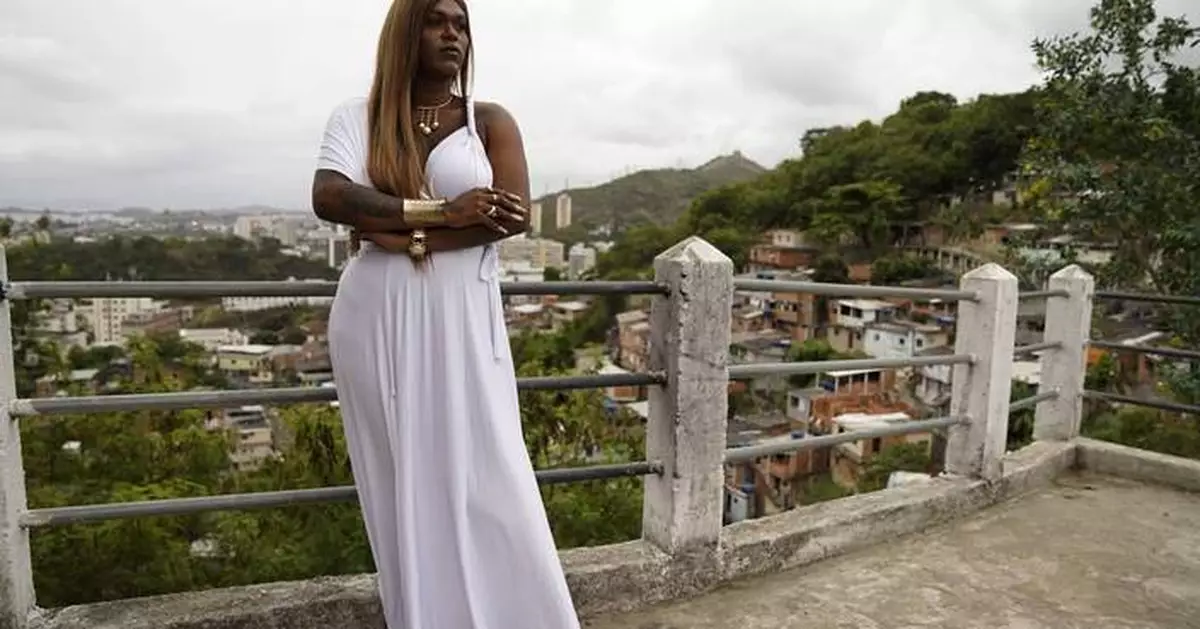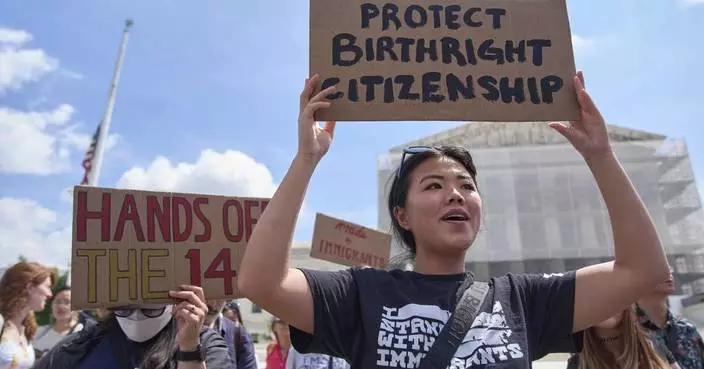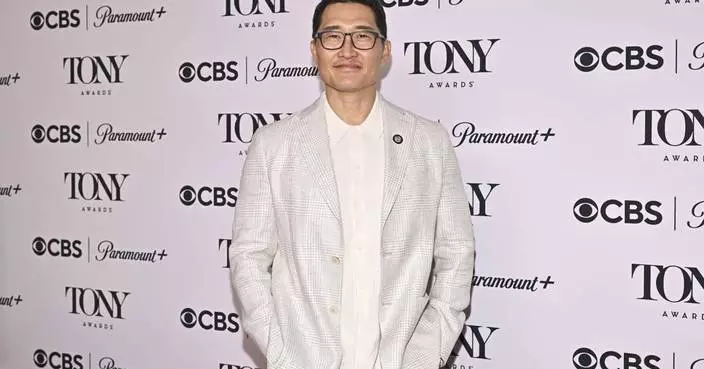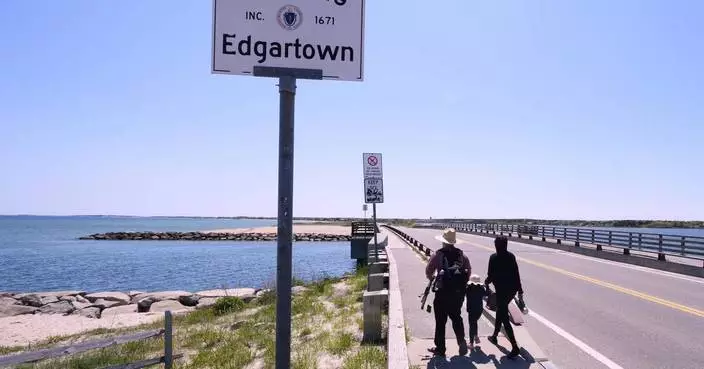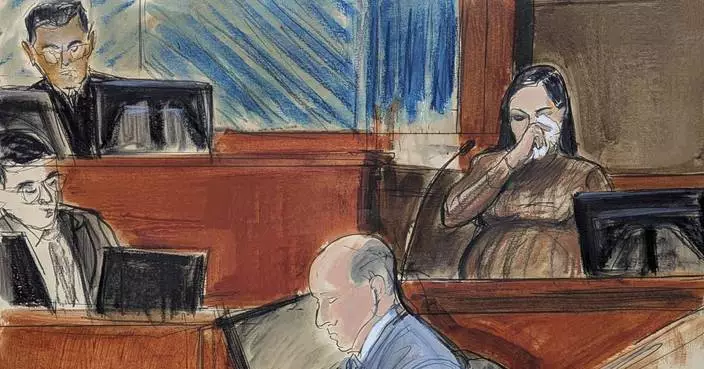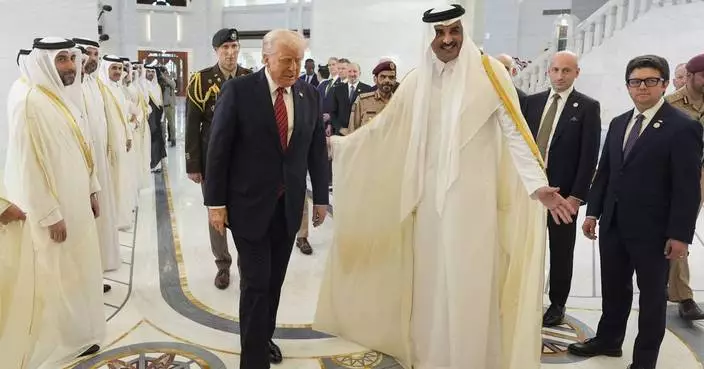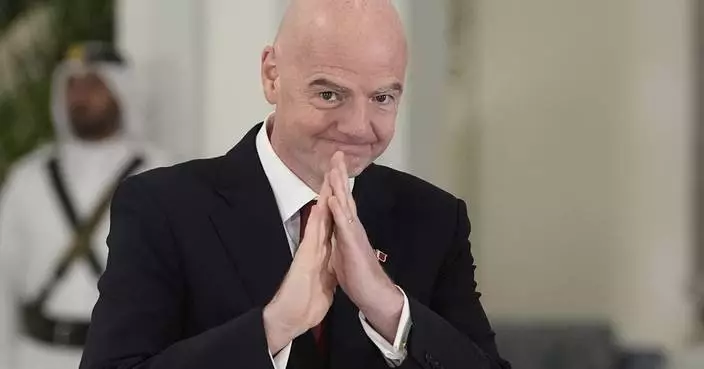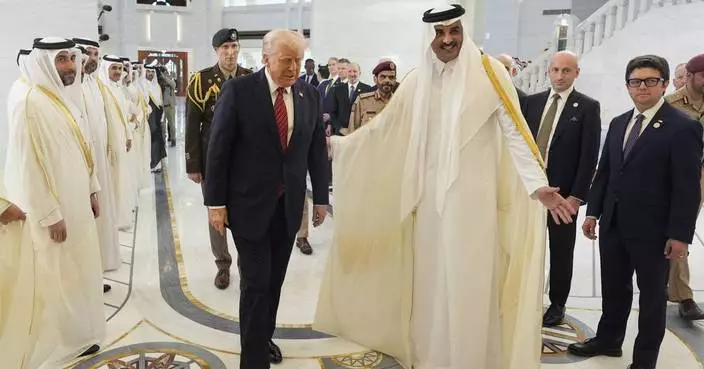RIO DE JANEIRO (AP) — Benny Briolly beamed as she strode through the concrete favela alleyway in a snow-white dress, volunteers proudly waving campaign flags emblazoned with her face.
The city councilwoman and nearly 1,000 other transgender politicians are running Sunday in every one of Brazil's 26 states, according to the nation’s electoral court, which is tracking them for the first time. The number of candidacies has tripled since the last local elections four years ago, when trans rights group Antra mapped them.
Click to Gallery
Indianarae Siqueira, a transgender woman running for city council, poses for a selfie with a supporter at an LGBTQIA+ pride parade in the Mare neighborhood of Rio de Janeiro, Sunday, Sept. 29, 2024. (AP Photo/Hannah-Kathryn Valles)
Benny Briolly, center, a transgender woman running for city council, canvases with supporters and members of her campaign team in Morro do Estado, in Niteroi, Rio de Janeiro state, Brazil, Saturday, Sept. 28, 2024. (AP Photo/Hannah-Kathryn Valles)
A campaign member of Benny Briolly, a transgender woman running for city council, waves a banner during a campaign event in Morro do Estado, in Niteroi, Rio de Janeiro state, Brazil, Saturday, Sept. 28, 2024. (AP Photo/Hannah-Kathryn Valles)
Indianarae Siqueira, a transgender woman running for city council, attends a rally led by state employees in Rio de Janeiro, Wednesday, Sep. 25, 2024. (AP Photo/Hannah-Kathryn Valles)
Benny Briolly, a transgender woman running for city council, poses for a photo during a campaign event with supporters and members of her campaign team in Morro do Estado, in Niteroi, Rio de Janeiro state, Brazil, Saturday, Sept. 28, 2024. (AP Photo/Hannah-Kathryn Valles)
As trans people have set their sights on political office, many have been met with intimidation efforts bent on turning them away, including a candidate in Brazil’s biggest city who survived an assassination attempt last week.
More trans people — 100 — were murdered in Brazil last year than in any other country, according to Transgender Europe, a network of global non-profits that tracks the data. Those precise statistics are almost certainly driven by a combination of poor reporting elsewhere and Brazil's active network of advocates, but experts agree that transphobia is ubiquitous.
On International Women’s Day last year, Nikolas Ferreira — the federal lawmaker who received more votes than any other — donned a blond wig in Congress’ lower house. He said it allowed him to speak as a woman and denounce trans people.
In 2022 Rio state lawmaker Rodrigo Amorim called Briolly “an aberration of nature” in the state's legislature.
Such tactics rally voters by portraying trans people as a menace to be courageously fought, according to Ligia Fabris, a gender and law specialist and a visiting professor at Yale University.
Both Amorim and Ferreira were staunch allies of far-right former President Jair Bolsonaro.
Transgender politician Leonora Áquilla, a candidate for city council in Sao Paulo this year, said that Bolsonaro had inflamed transphobia and that she has had to stare down people shouting death threats to her face.
Bolsonaro lost his re-election bid to leftist Luiz Inácio Lula da Silva in 2022 but transphobia has far from retreated.
Since entering the public eye, Briolly has received over 700 death threats. Some have included the address of her home in Rio de Janeiro’s metro area and warnings that she would suffer the same fate as city councilwoman Marielle Franco, a champion for LGBTQ+ rights who was gunned down in 2018. That threat prompted the Inter-American Commission on Human Rights to demand that Brazil provide Briolly protection.
She won’t be scared off her reelection bid even though some may want her dead.
“When we get into politics, our bodies become threats and we become constant targets,” Briolly told the Associated Press, with the city of Niteroi — across the bay from Rio — stretching out behind her. “Our bodies are revolutionary, are daring ... they are bodies that emanate hope to all those who were left behind.”
Áquilla narrowly escaped an assassination attempt on Sept. 26. She was in northern Sao Paulo on her way to look into reports of transphobia when a motorcycle deliberately slammed into her car. When she got out, the driver revved his engine, and instinctively she ducked. The bullet from his gun missed her, and he fired more shots as she lay there, pretending to be dead. He escaped and Áquilla has ceased in-person campaigning.
“There have been so many threats they became banal; we never thought it would happen. I’m completely in shock. I’m taking a sedative, because I can’t control my nervousness, my anxiety,” she said in a video call. “Right on the eve of the election, the moment when I most need to be on the streets, they’re trying to silence me.”
Duda Salabert, who is running for mayor in Brazil’s sixth biggest city, Belo Horizonte, made history in 2022 when elected alongside another trans woman to Brazil’s lower house of Congress. Their victories were widely regarded as a breakthrough for trans representation, but Salabert said that during that campaign she received death threats daily.
“I had to walk with an armed escort ... I had to vote with a bulletproof vest, according to police instructions, and I couldn’t go into large crowds because I risked being attacked,” she said.
This year, Salabert said she is seeking to become the first trans mayor of a major city in Latin America.
“It’s a joy, because we’re making history, but it’s sad because our candidacy highlights the entire history of exclusion, violence and alienation of the transvestite and transgender community from electoral processes in Brazil and Latin America,” she said in a video call.
Indianarae Siqueira, a trangender sex worker and longtime activist running to be a city councilor in Rio, says that increasingly seeing trans people occupy places of power has had a snowball effect.
“Those who managed to win and are there — I think this is a reference and gives incentive so that people want to enter (politics),” she said during an interview on the steps leading to Rio’s municipal assembly.
Back in the Niteroi favela, Briolly agreed that there’s an element of joy to playing an active role in politics, even amid the threats.
“For me, it’s pride — a latent, powerful pride — that grows more and more in my heart and in the heart of each and every person who believes that my body and my voice are just a reflection, an empowerment of the collective struggle,” she said. “When a Black trans woman moves, she moves the whole of society."

Indianarae Siqueira, a transgender woman running for city council, poses for a selfie with a supporter at an LGBTQIA+ pride parade in the Mare neighborhood of Rio de Janeiro, Sunday, Sept. 29, 2024. (AP Photo/Hannah-Kathryn Valles)
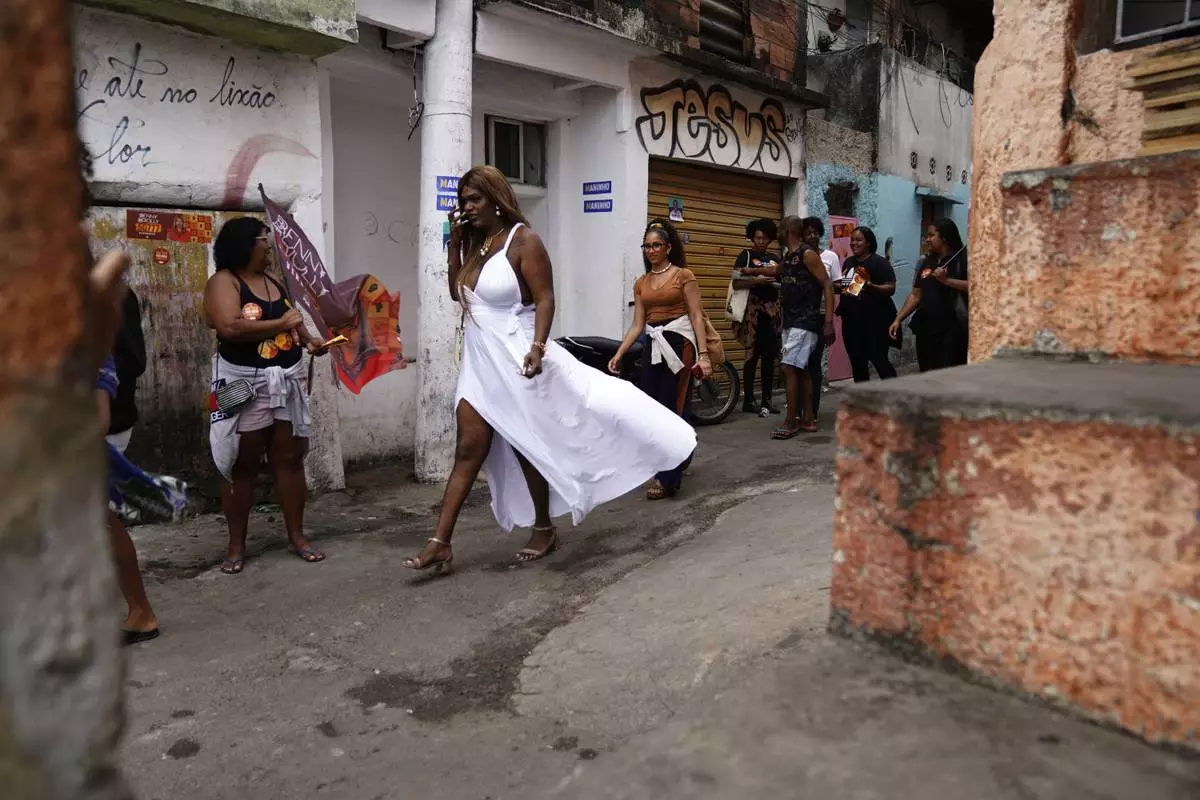
Benny Briolly, center, a transgender woman running for city council, canvases with supporters and members of her campaign team in Morro do Estado, in Niteroi, Rio de Janeiro state, Brazil, Saturday, Sept. 28, 2024. (AP Photo/Hannah-Kathryn Valles)
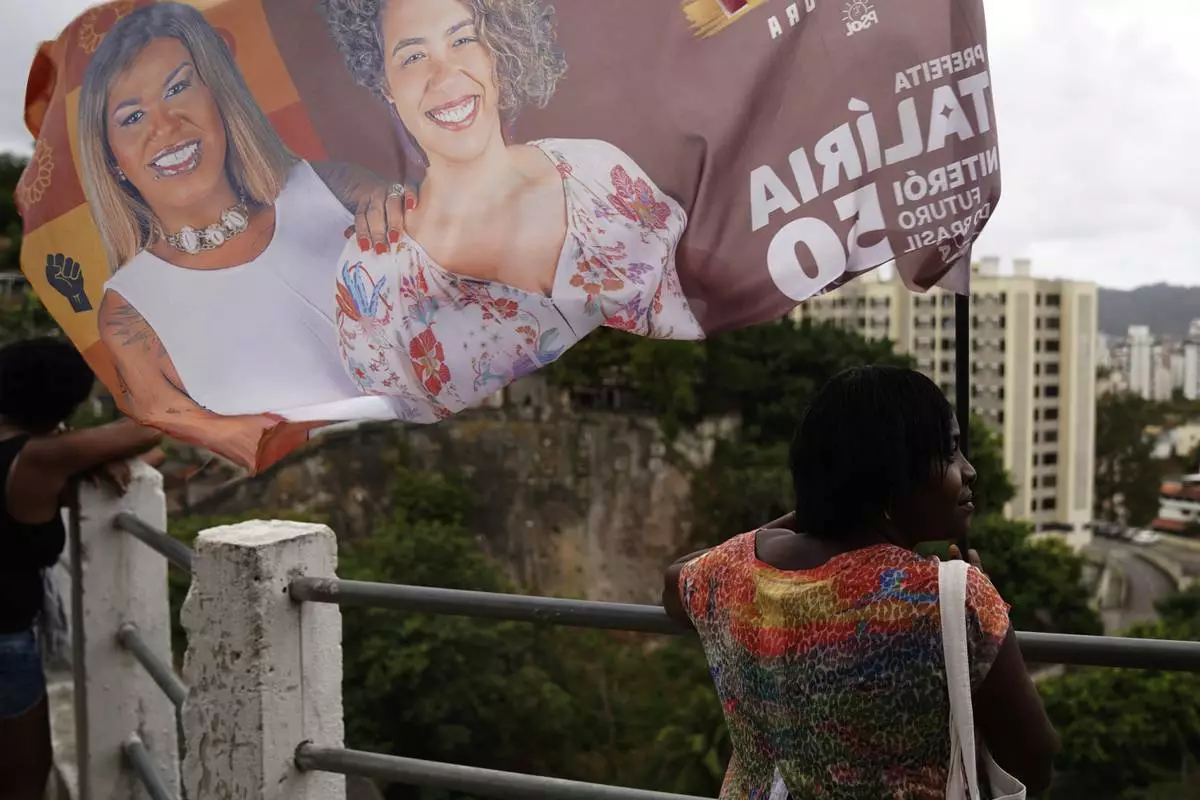
A campaign member of Benny Briolly, a transgender woman running for city council, waves a banner during a campaign event in Morro do Estado, in Niteroi, Rio de Janeiro state, Brazil, Saturday, Sept. 28, 2024. (AP Photo/Hannah-Kathryn Valles)
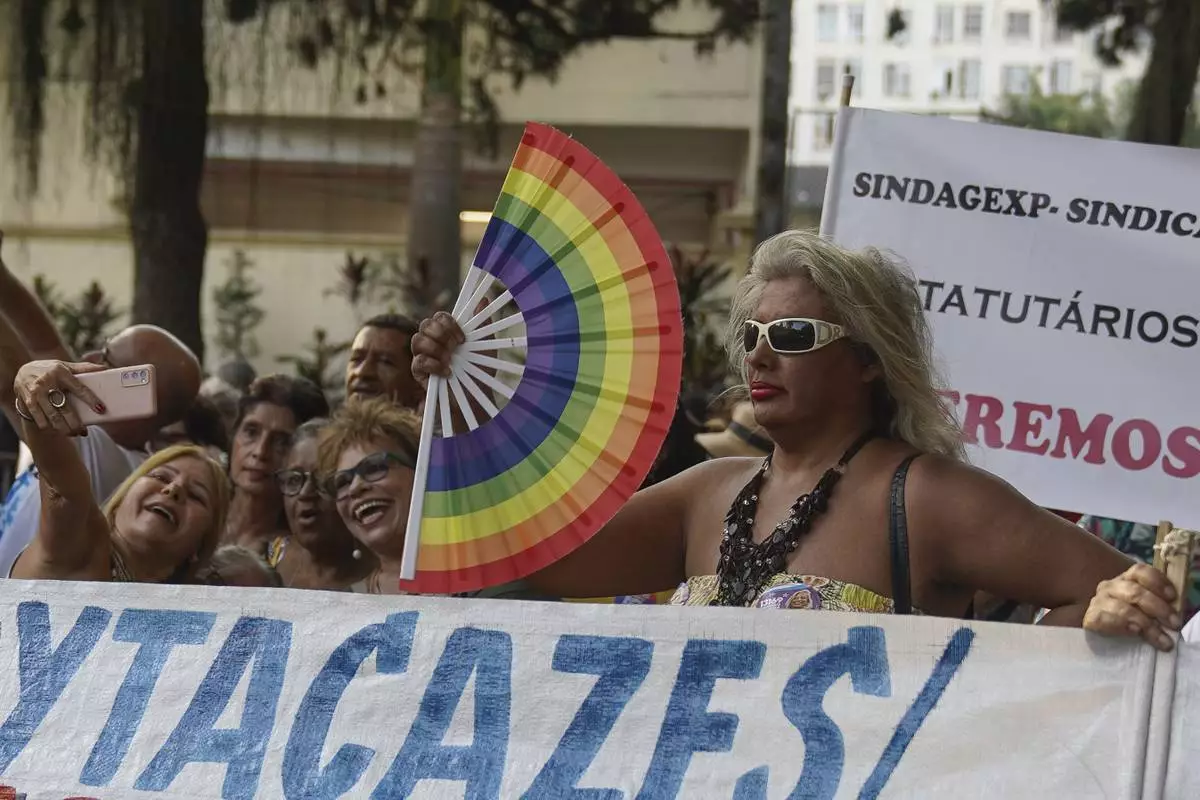
Indianarae Siqueira, a transgender woman running for city council, attends a rally led by state employees in Rio de Janeiro, Wednesday, Sep. 25, 2024. (AP Photo/Hannah-Kathryn Valles)
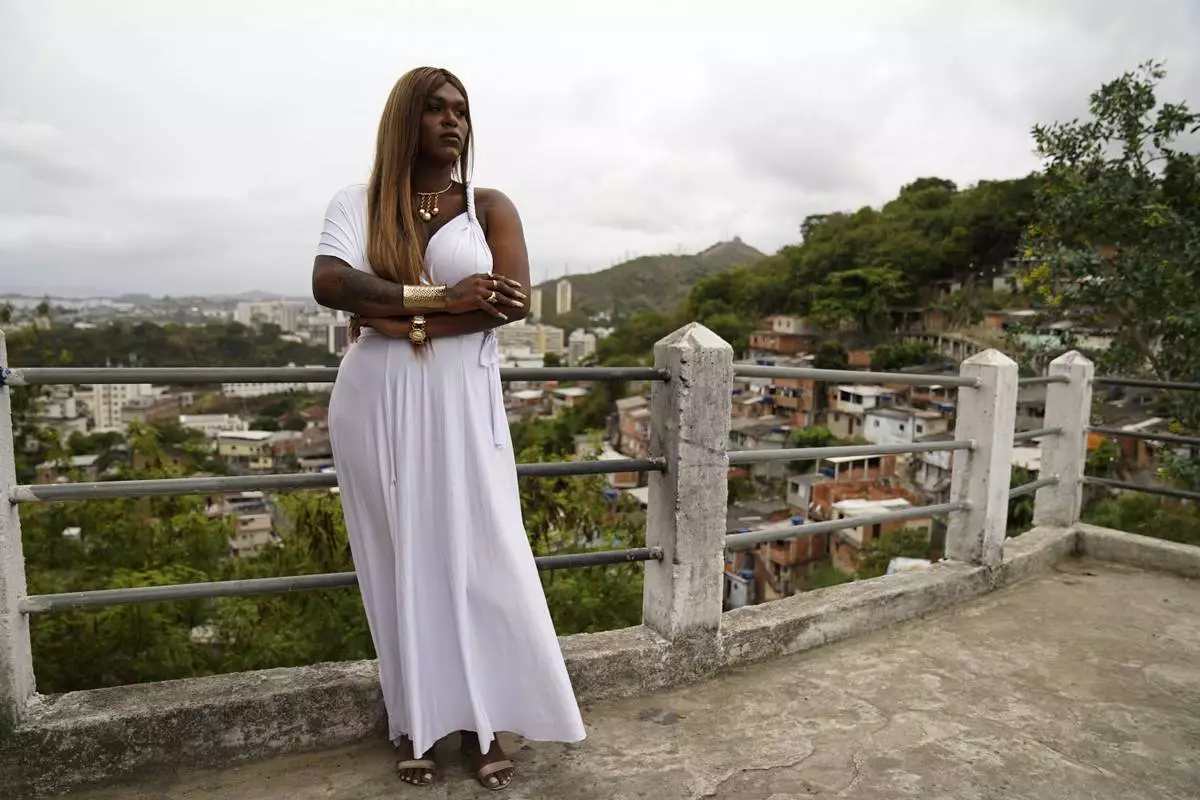
Benny Briolly, a transgender woman running for city council, poses for a photo during a campaign event with supporters and members of her campaign team in Morro do Estado, in Niteroi, Rio de Janeiro state, Brazil, Saturday, Sept. 28, 2024. (AP Photo/Hannah-Kathryn Valles)
ANTALYA, Turkey (AP) — NATO foreign ministers on Thursday debated an American demand to massively ramp up defense investment as the United States focuses on security challenges outside of Europe.
At talks in Antalya, Turkey, NATO Secretary-General Mark Rutte said more investment and military equipment are needed to deal with threats posed by Russia and terrorism but also by China, which has become the focus of U.S. concern.
“When it comes to the core defense spending, we need to do much, much more,” Rutte told reporters. He underlined that once Russia's war in Ukraine is over, Moscow could reconstitute its armed forces within three years to five years.
U.S. Secretary of State Marco Rubio said “the alliance is only as strong as its weakest link.” He insisted that the U.S. demand for allies to invest 5% of their gross domestic product on defense over the next seven years is about “spending money on the capabilities that are needed for the threats of the 21st century.”
The debate on defense spending is heating up before the summit of President Donald Trump and his NATO counterparts in the Netherlands on June 24-25. That gathering will set the course for future European security, including that of Ukraine.
In Istanbul, Russian and Ukrainian delegations will hold their first direct peace talks in three years, though the timing is unclear. Russian President Vladimir Putin spurned Ukrainian President Volodymyr Zelenskyy’s offer to meet face to face in Turkey this week. Trump had pressed for Putin and Zelenskyy to meet but brushed off Putin's decision to skip.
Meantime, Rubio, who is due in Istanbul on Friday, met with Syrian Foreign Minister Assad al-Shaibani on the sidelines of NATO meeting as Damascus seeks to reintegrate into the Mideast and beyond.
The NATO sessions focused on a new spending plan in the works. As Russia’s war on Ukraine entered its second year, NATO leaders agreed in 2023 to spend at least 2% of gross domestic product on national defense budgets. So far, 22 of the 32 member countries have done so.
The new plan is for all allies to aim for 3.5% of GDP on their defense budgets by 2032, plus an extra 1.5% on potentially defense-related things like infrastructure — roads, bridges, airports and seaports.
While the two figures add up to 5%, factoring in infrastructure and cybersecurity would change the basis on which NATO traditionally calculates defense spending. The seven-year time frame is also short by the alliance’s usual standards.
Rutte refused to confirm the numbers but acknowledged the importance of including infrastructure.
It’s difficult to see how many members would reach a new 3.5% goal. Belgium, Canada, Croatia, Italy, Luxembourg, Montenegro, Portugal, Slovenia and Spain are not even spending 2% yet, though Spain expects to reach that goal this year, a year past the deadline.
The U.S. demand would require investment at an unprecedented scale. But Trump has cast doubt over whether the U.S. would defend allies that spend too little — an incentive to do more, even as European allies realize that they must match the threat posed by Russia.
Europe-wide, industry leaders and experts have pointed out challenges the continent must overcome to be a truly self-sufficient military power, chiefly its decades-long reliance on the U.S. as well as its fragmented defense industry.
“There is a lot at stake for us,” Lithuanian Foreign Minister Kęstutis Budrys said. He urged NATO partners to meet the investment goals faster than the 2032 target "because we see the tempo and the speed, how Russia generates its forces now as we speak.”
British Foreign Secretary David Lammy said his country should reach 2.5% by 2027, and then 3% by the next U.K. elections planned for 2029.
“It’s hugely important that we recommit to Europe’s defense and that we step up alongside our U.S. partners in this challenging geopolitical moment where there are so many precious across the world, and particularly in the Indo-Pacific,” he said.
As an organization, NATO plays no direct security role in Asia, and it's unclear what demands the Trump administration might make of the allies as it turns its attention to China. The last NATO security operation outside the Euro-Atlantic area, its 18-year stay in Afghanistan, ended in chaos.
Asked whether the next summit communique will underline that Russia still poses the greatest threat to NATO allies, Rutte said, "We will see what is the best way to play that.”
Questions also hang over the way the leaders will frame NATO's commitment to Ukraine. The war has dominated recent summits, with envoys struggling to find language that would further anchor the country to the alliance without actually allowing it to join.
But this year, Washington has taken Ukraine's membership off the table. Trump has shown impatience with Zelenskyy and remains unclear whether the Ukrainian leader will be invited to the June meeting in The Hague.
Cook reported from Brussels, and Fraser from Ankara, Turkey.

NATO foreign ministers gather during a NATO's informal meeting of foreign ministers in Antalya, southern Turkey, Thursday, May 15, 2025. (AP Photo/Khalil Hamra)
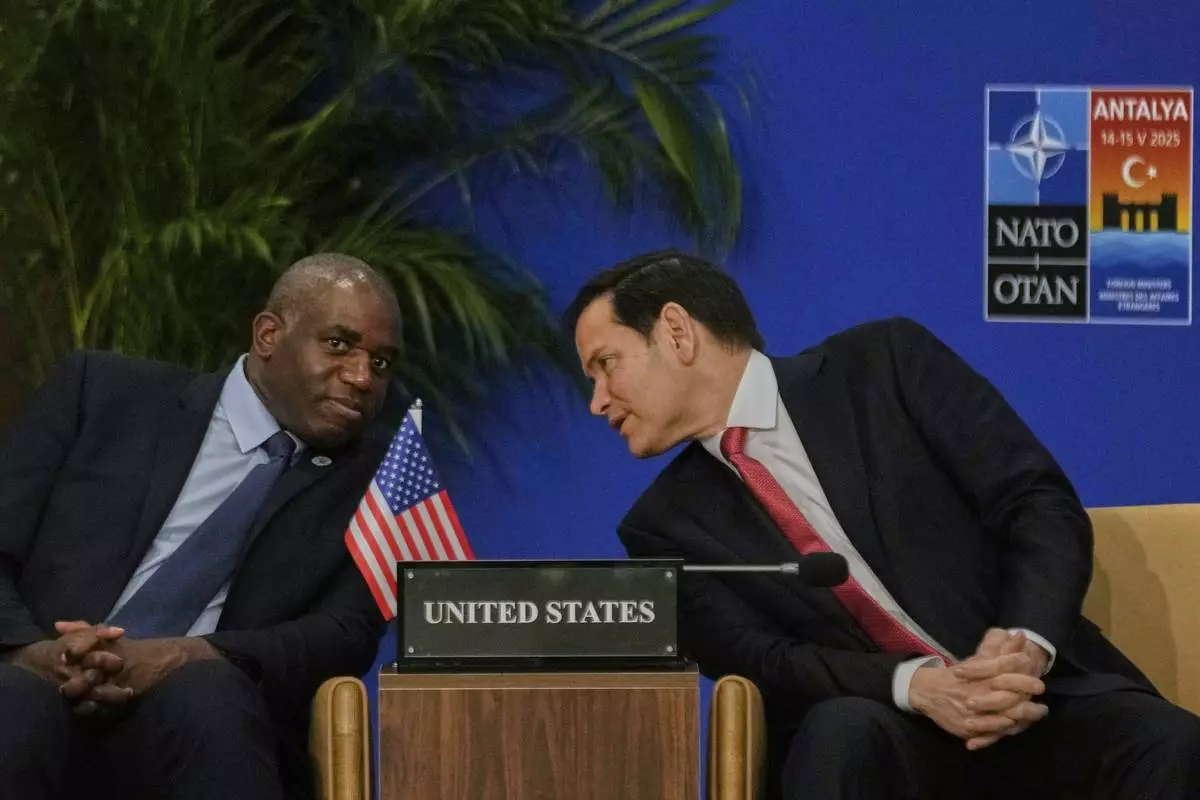
United States Secretary of State Marco Rubio, right, talks to British Foreign Secretary David Lammy during an informal meeting of NATO's foreign ministers in Antalya, southern Turkey, Thursday, May 15, 2025. (AP Photo/Khalil Hamra)

NATO Secretary General Mark Rutte attends a news conference at a NATO's informal meeting of foreign ministers in Antalya, southern Turkey, Thursday, May 15, 2025. (AP Photo/Khalil Hamra)
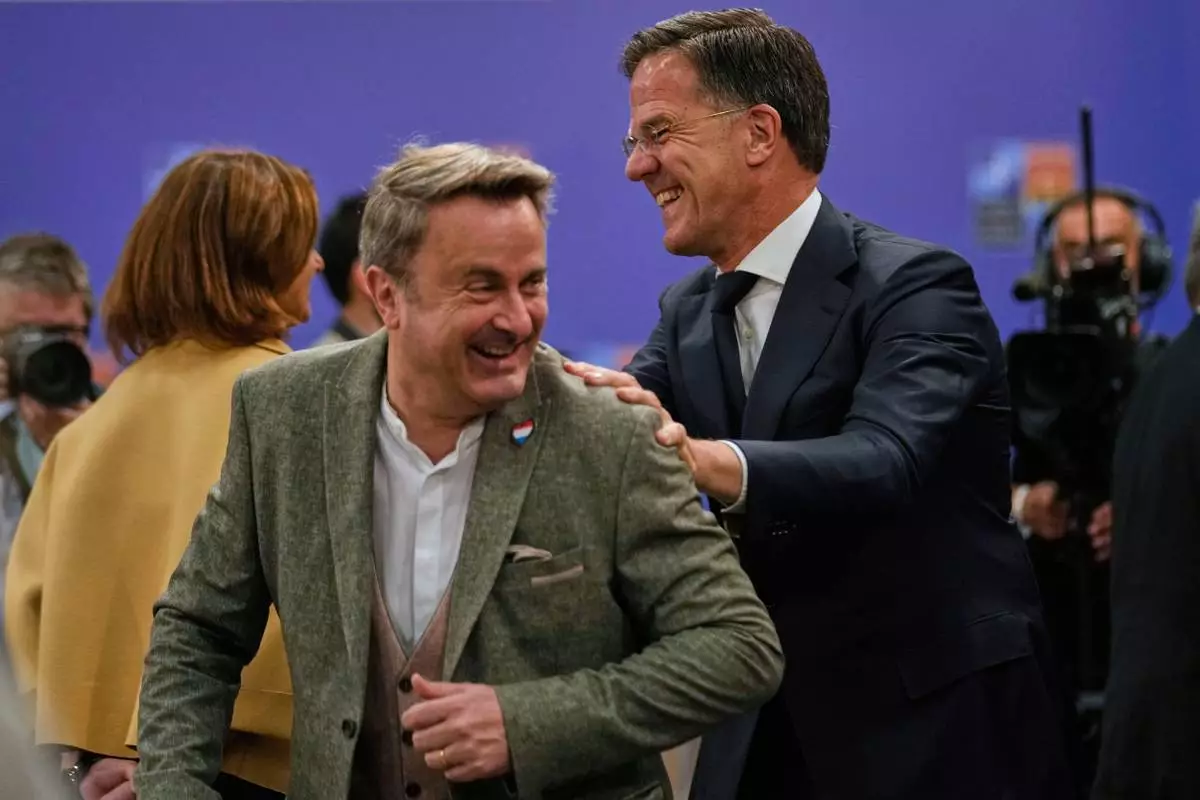
NATO Secretary-General Mark Rutte, right, talks to Luxembourg's Foreign Minister Xavier Bettel as they arrive for a group photo during a NATO's informal meeting of foreign ministers in Antalya, southern Turkey, Thursday, May 15, 2025. (AP Photo/Khalil Hamra)
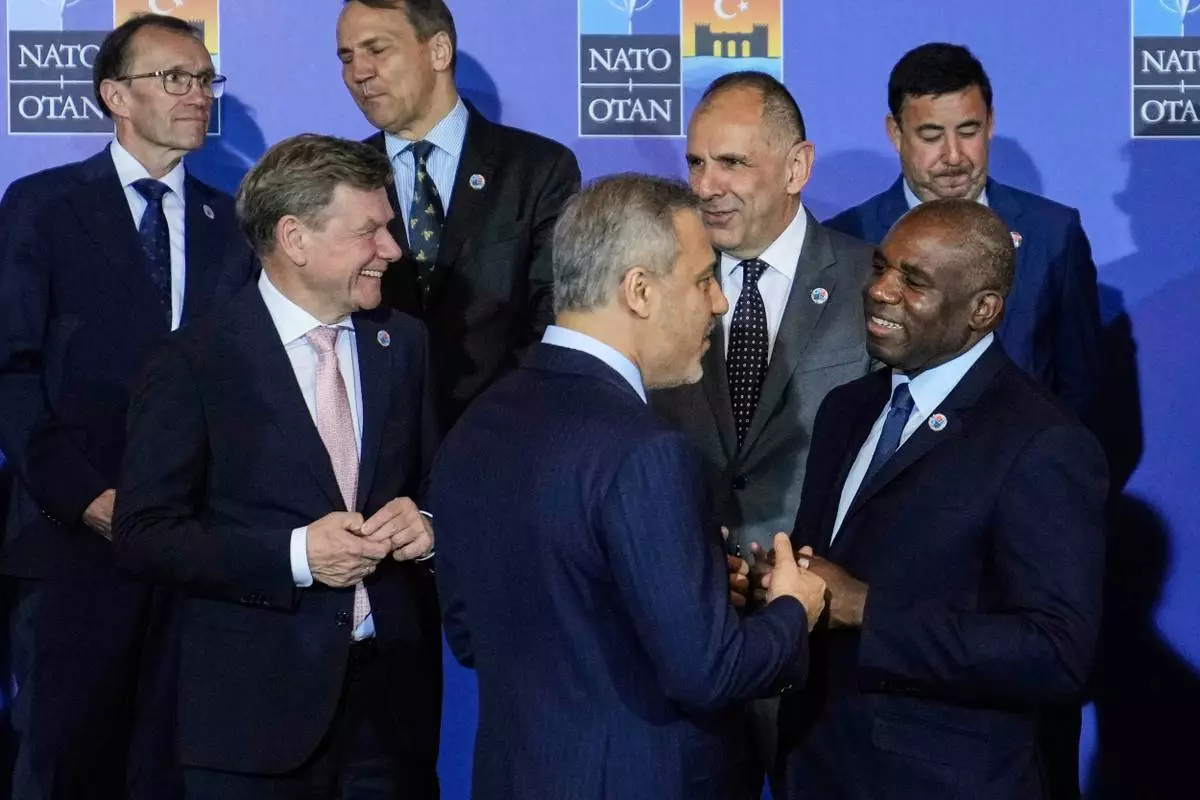
Turkey's Foreign Minister Hakan Fidan, center, talks to British Foreign Secretary David Lammy, right, next to Germany's Foreign Minister Johann Wadephul, left, as they wait for a group photo during a NATO's informal meeting of foreign ministers in Antalya, southern Turkey, Thursday, May 15, 2025. (AP Photo/Khalil Hamra)
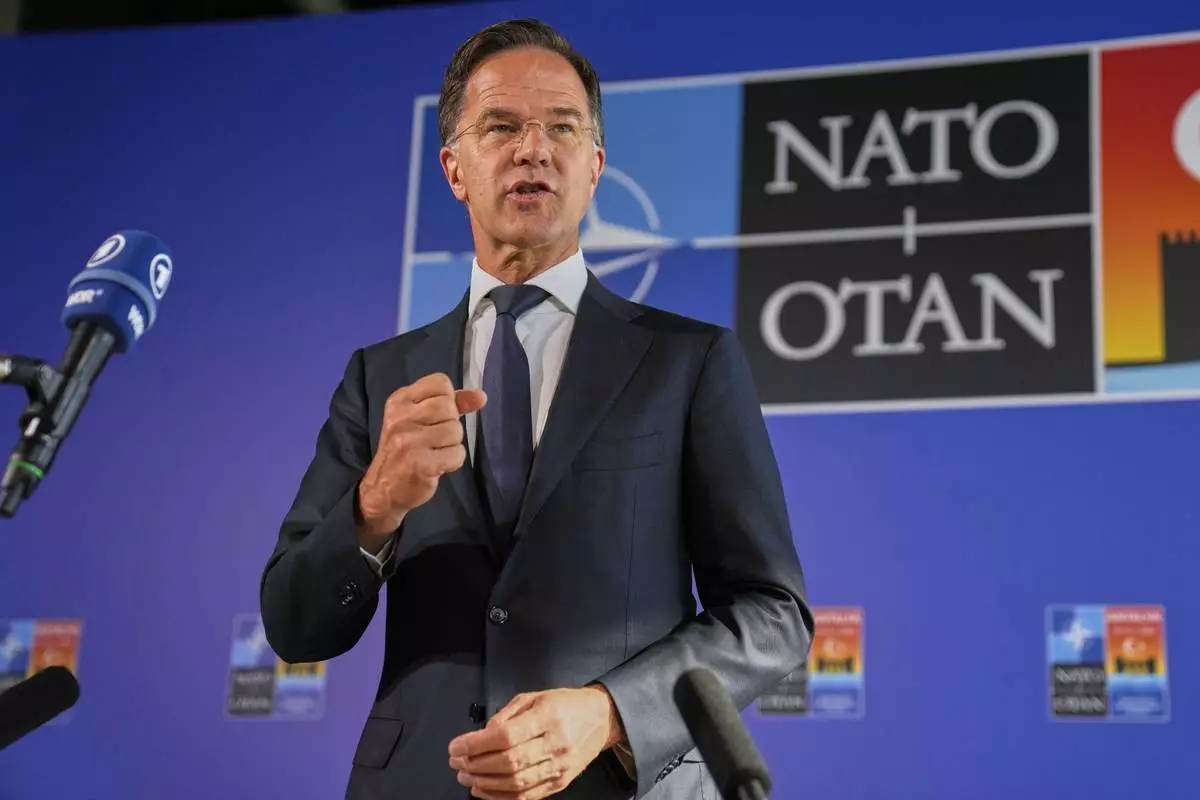
NATO Secretary General Mark Rutte talks to journalists as he arrives for a NATO's informal meeting of foreign ministers in Antalya, southern Turkey, Thursday, May 15, 2025. (AP Photo/Khalil Hamra)
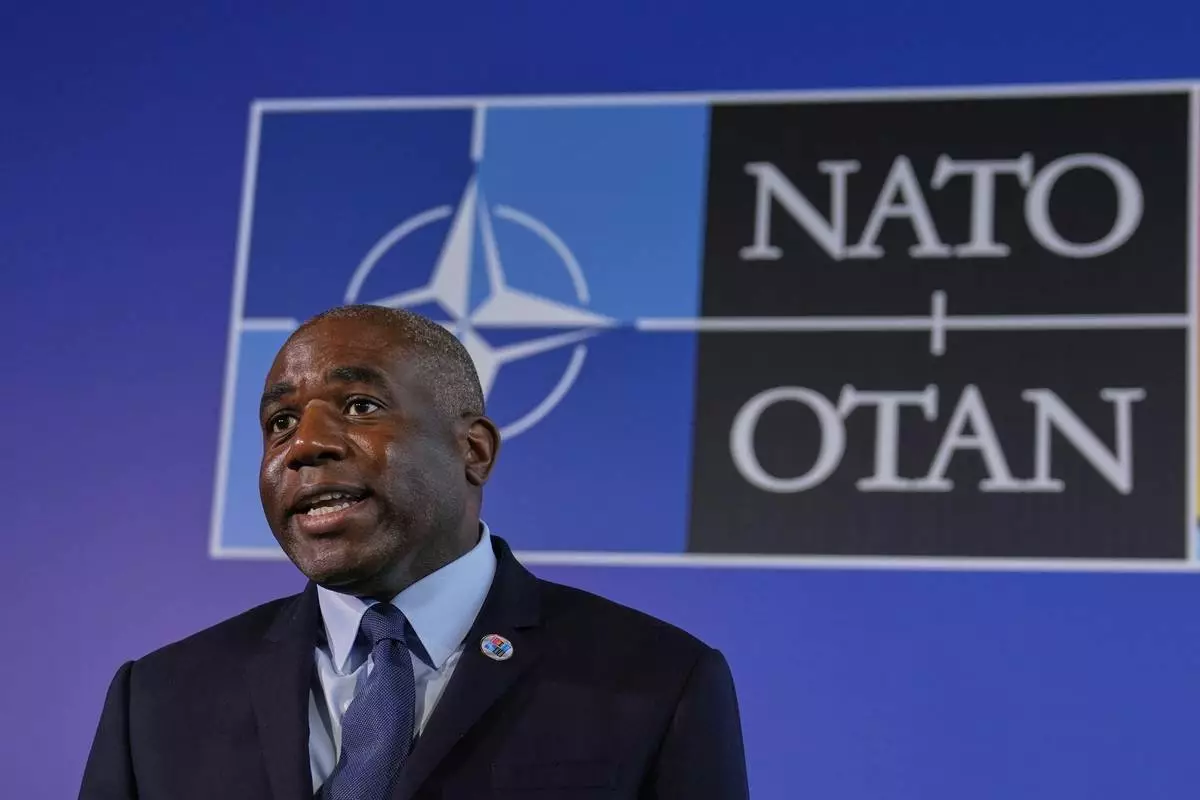
British Foreign Secretary David Lammy talks to journalists as he arrives for a NATO's informal meeting of foreign ministers in Antalya, southern Turkey, Thursday, May 15, 2025. (AP Photo/Khalil Hamra)
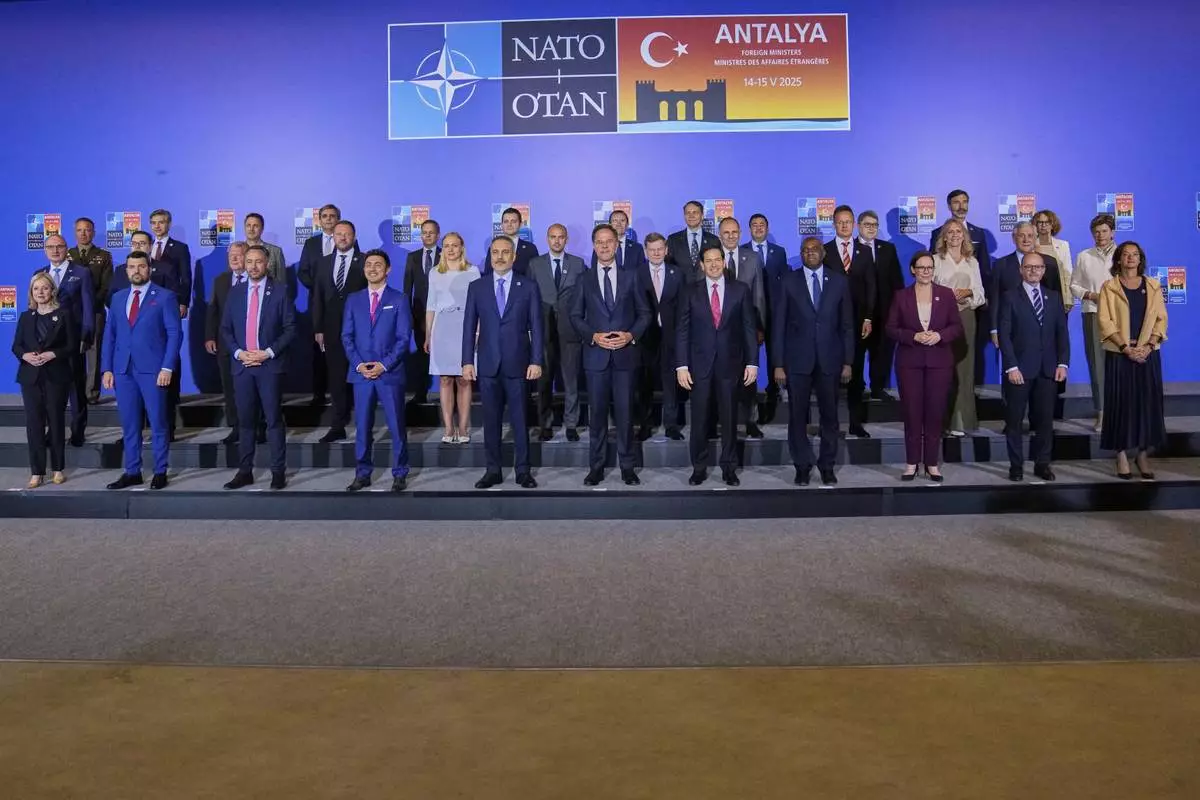
NATO foreign ministers pose for a group photo during their informal meeting in Antalya, southern Turkey, Thursday, May 15, 2025. (AP Photo/Khalil Hamra)
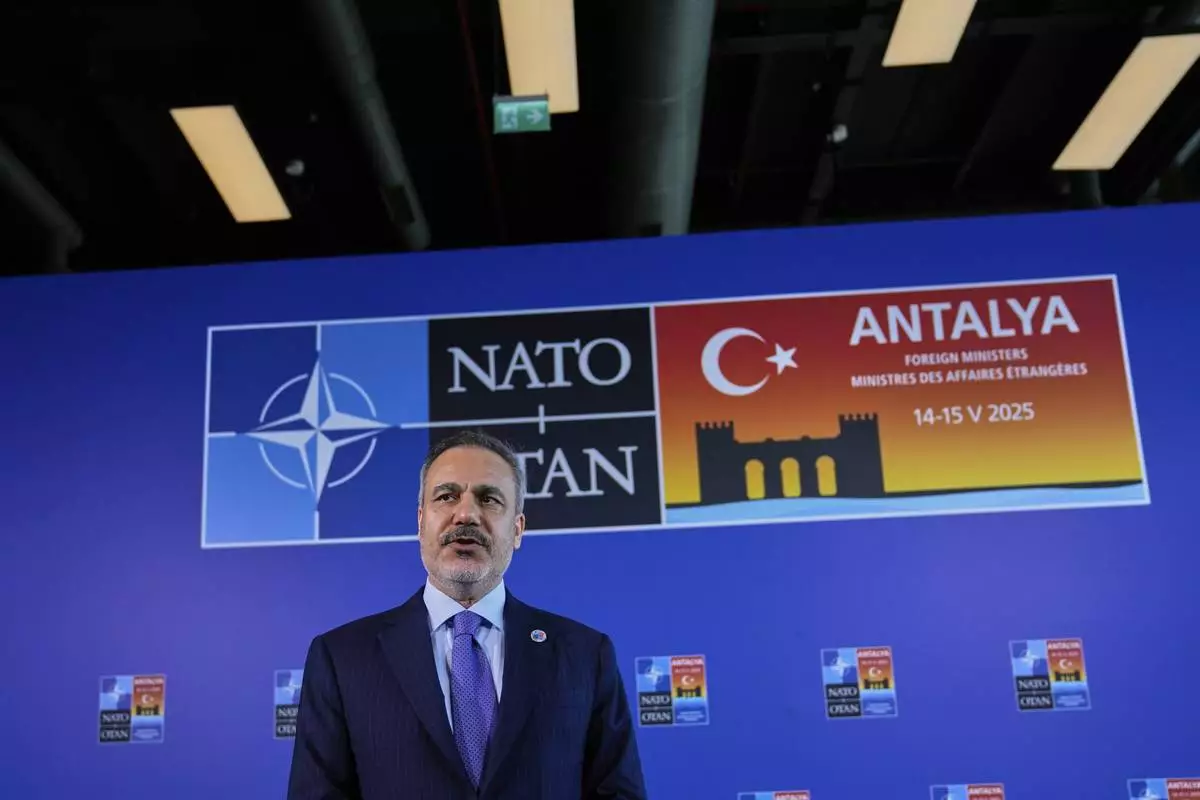
Turkey's Foreign Minister Hakan Fidan talks to journalists as he arrives for a NATO's informal meeting of foreign ministers in Antalya, southern Turkey, Thursday, May 15, 2025. (AP Photo/Khalil Hamra)
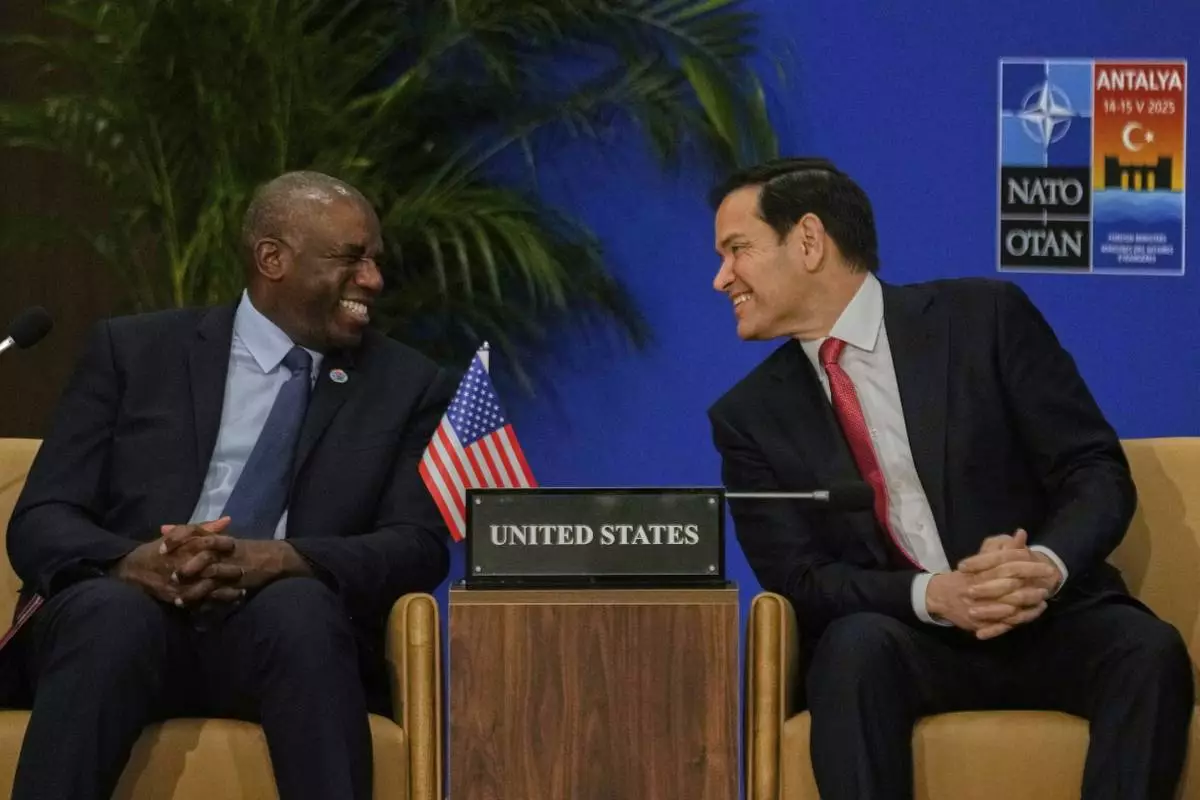
United States Secretary of State Marco Rubio, right, talks to British Foreign Secretary David Lammy during an informal meeting of NATO's foreign ministers in Antalya, southern Turkey, Thursday, May 15, 2025. (AP Photo/Khalil Hamra)
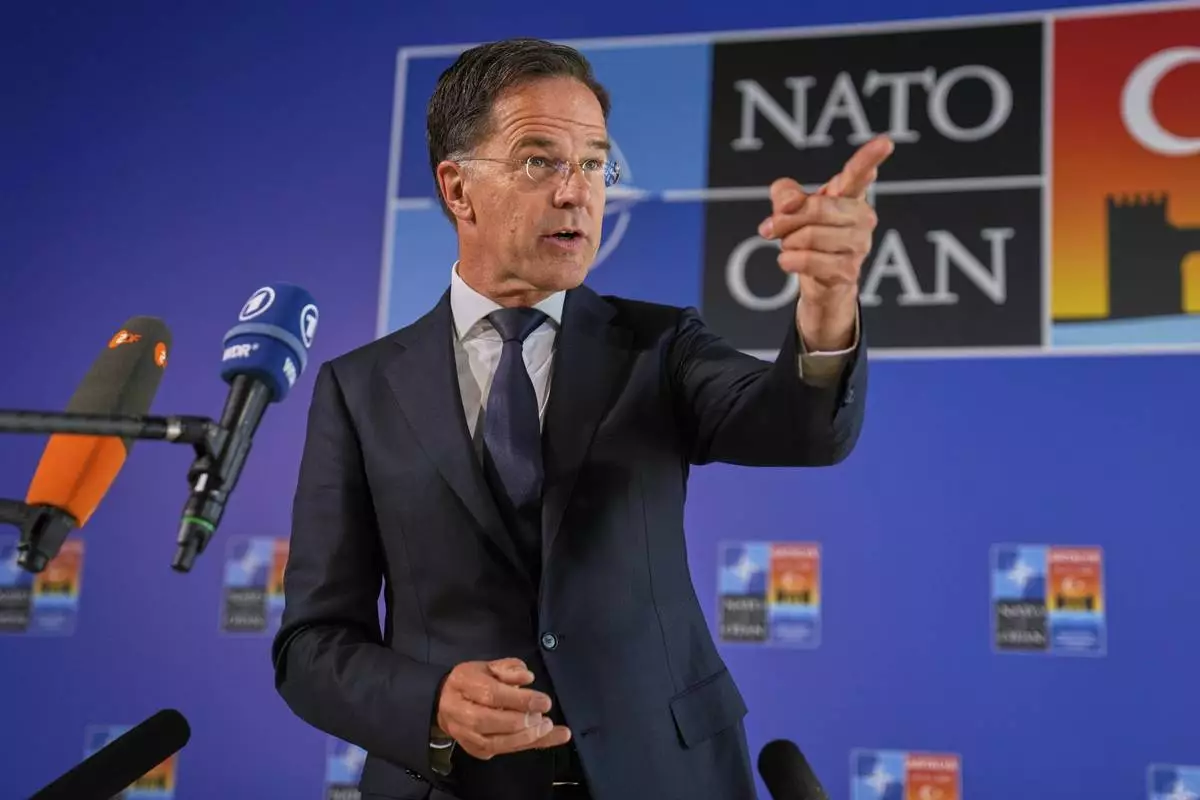
NATO Secretary General Mark Rutte talks to journalists as he arrives for NATO's informal meeting of foreign ministers in Antalya, southern Turkey, Thursday, May 15, 2025. (AP Photo/Khalil Hamra)
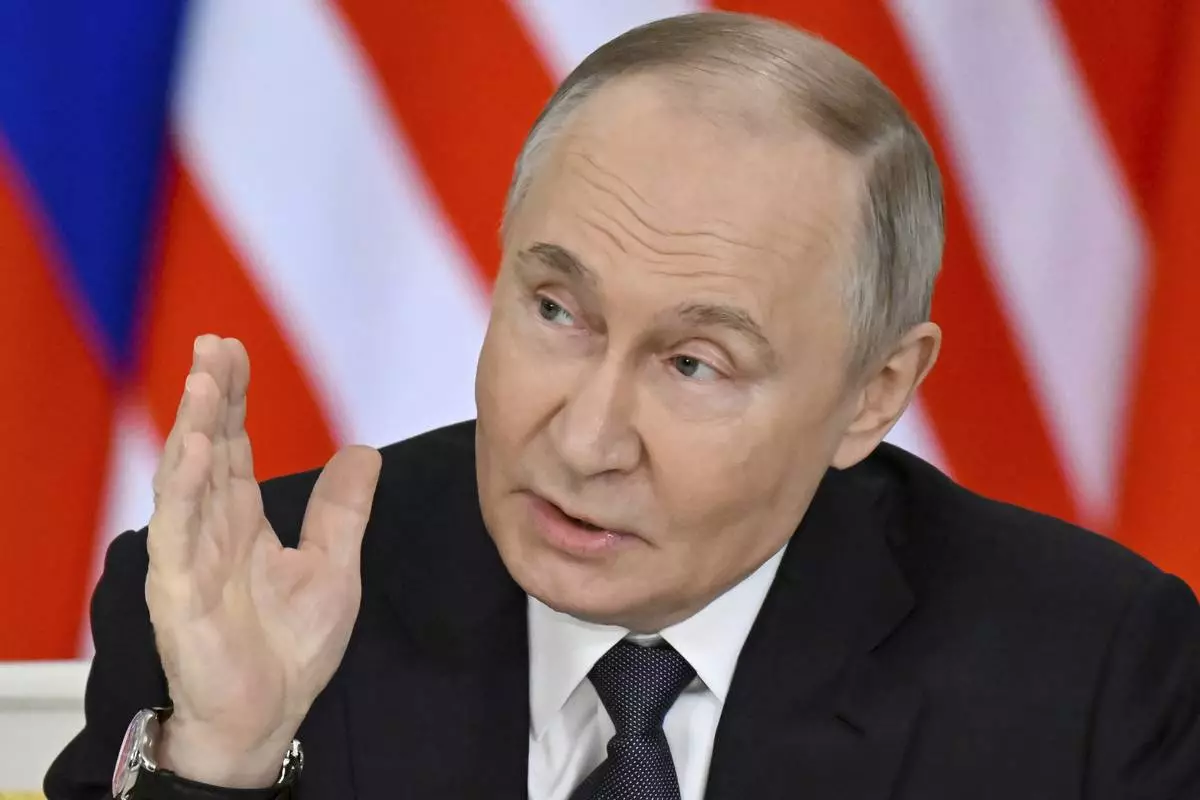
Russian President Vladimir Putin speaks during a joint press statement with Malaysian Prime Minister Anwar Ibrahim at the Kremlin in Moscow, Russia, Wednesday, May 14, 2025. (Alexander Nemenov/Pool Photo via AP)
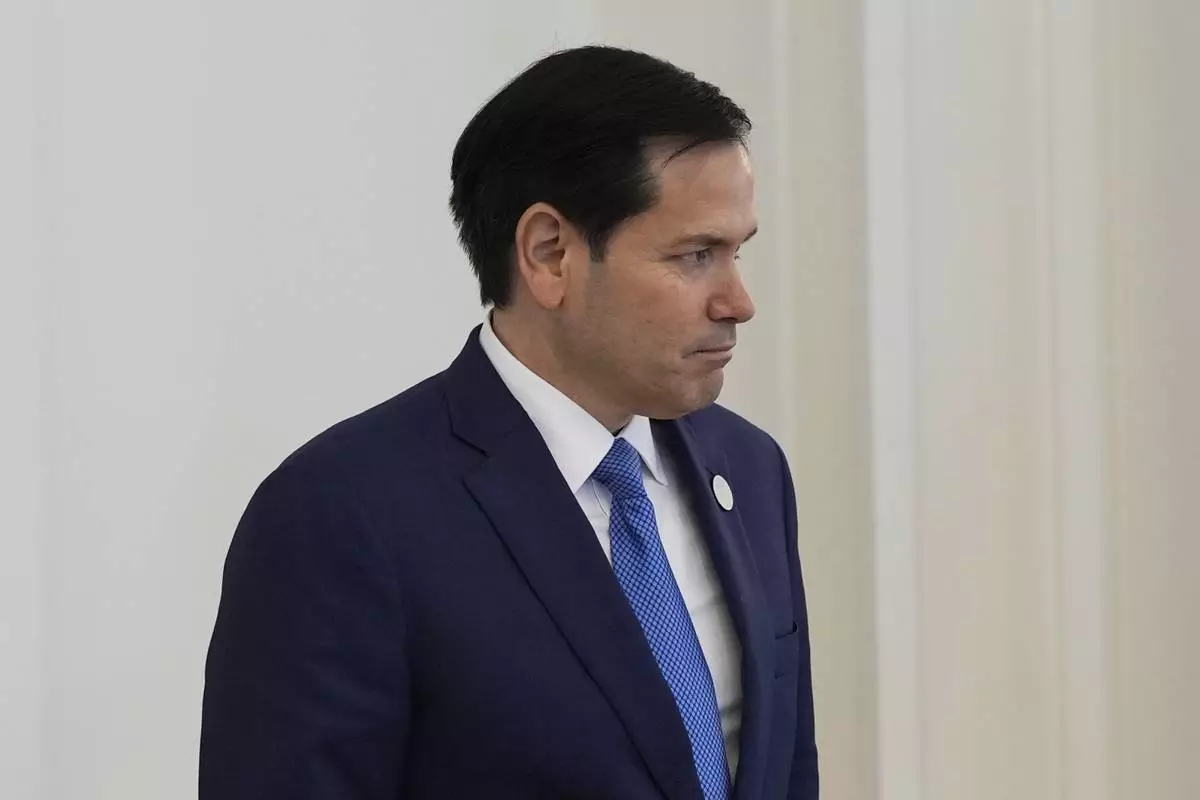
Secretary of State Marco Rubio departs a lunch between President Donald Trump and Qatar's Emir Sheikh Tamim bin Hamad Al Thani at the Amiri Diwan in Doha, Qatar, Wednesday, May 14, 2025. (AP Photo/Alex Brandon)







